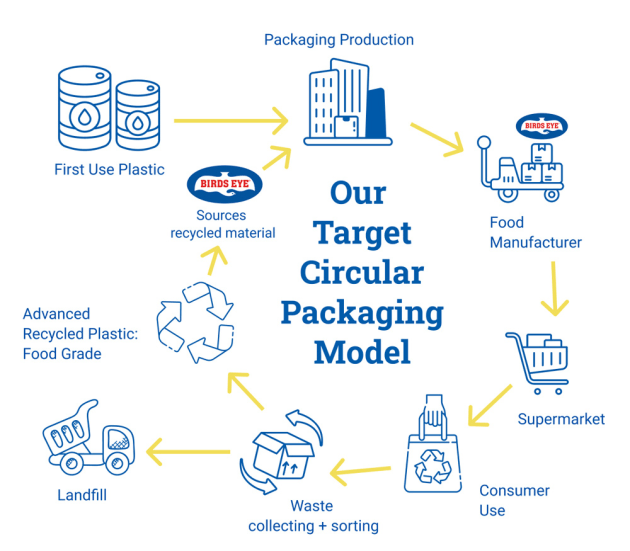Birds Eye has committed to sourcing post-consumer recycled (PCR) material as part of its broader sustainable packaging journey, commencing with plastic steam bags.
This year, three products across Birds Eye’s Steamfresh Vegetables (750g) range will consist of 22 per cent recycled content within the steam bags, with plans for a broader roll-out in coming years.
The updated packaging will also feature a QR code directing curious consumers to a short video communicating the brand’s sustainability credentials and ongoing commitment to supporting a circular economy.
The QR code is an initiative by Birds Eye and managed in-house as a method of communicating the company’s PCR initiative in a format accessible to consumers.
The QR code redirects consumers to Birds Eye’s branded website where it can share more about its sustainable packaging journey and its target circular packaging model.
“We are always looking at innovative ways to reduce the amount of virgin plastic we use, while also ensuring our packaging performs the function it is intended to,” Phoebe Dowling, head of sustainability at Simplot, the maker of Birds Eye products, tells PKN.
“A part of Birds Eye’s vision towards a circular economy is introducing recycled content into our packaging, however, this comes with some challenges. The type of recycled plastic packaging found in the freezer aisle differs to that found elsewhere in the supermarket, and currently, this advanced recycled plastic stock availability for frozen produce is limited on both a local and global scale.
“As this supply increases, we intend on further increasing its incorporation across our range.
“While we can only bring you 22 per cent in our Steamfresh 750g microwave bags for now, we have great ambitions to continue to increase our recycled content further across the Birds Eye range from 2026.”
According to Katie Saunders, Birds Eye’s senior director of marketing (APAC), while the introduction of PCR is a starting point in the business’ long-term plan to decrease the use of virgin plastic, it’s a positive step forward for the brand and entire freezer category.
“We recognise consumers and retailers are increasingly seeking sustainable packaging solutions without compromising on quality and convenience. We share this desire to do more with less and to operate to the highest sustainability standards,” Saunders said.
“Our move to incorporate 22 per cent recycled plastic into our Steamfresh 750g inner bags ensures Australians can now extend their eco-conscious purchasing behaviours to the freezer aisle.
“The incorporation of recycled material across our Steamfresh inner bags means 4.6 tonnes of virgin plastic will be eliminated annually, which is something we’re really proud of.”
In 2023, the brand further removed 15 per cent virgin plastic from the SteamFresh (750g) outer bags, and from 2026 hopes to have access to locally collected and processed PCR, aiming for a minimum of 30 per cent PCR incorporated into the range.
“This is another positive step in our mission to support a circular packaging economy. We’re committed to sourcing more Australian PCR content as it becomes available, expanding its inclusion across the Birds Eye range,” added Saunders.
The update follows an initiative in 2021 that saw Birds Eye refresh all its outer packaging bags to a more sustainable structure, moving from laminate to a recyclable mono material to ensure the packaging can be recycled where facilities are available.
The first Steamfresh vegetable products to feature recycled plastic will be phased into all major retailers and supermarkets across Australia from mid-April.







